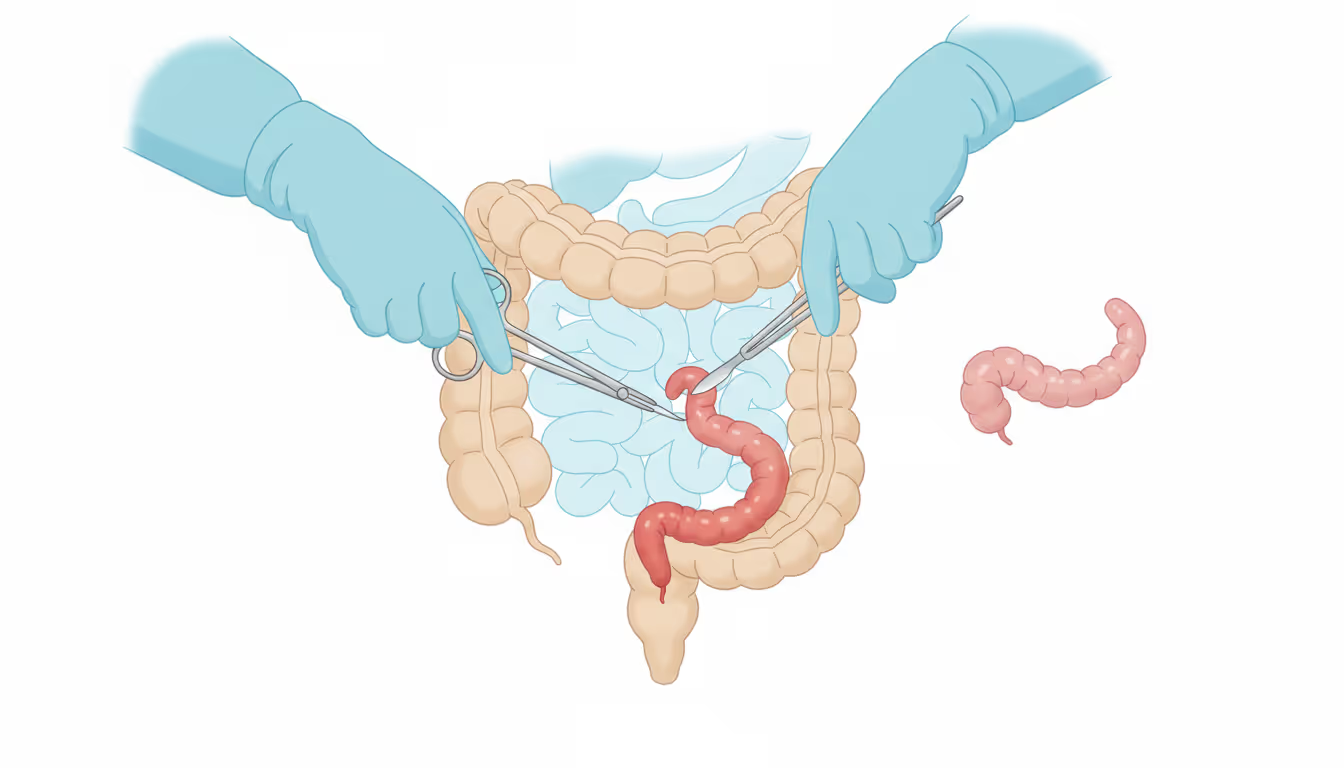
Appendectomy:An appendectomy involves surgically removing the appendix, a small, worm-like projection from the large intestine. This procedure is typically conducted due to suspected appendicitis, which is the inflammation of the appendix's wall, often linked to an infection. Appendicitis is usually indicated by symptoms and a physical examination. Initially, the pain from appendicitis is vague and not localized, but as the condition worsens and the inflammation spreads to the outer layer of the appendix and eventually to the abdominal lining, the pain becomes more focused. It typically localizes to a spot between the front of the right hip bone and the belly button, known as McBurney's point, named after Dr. Charles McBurney. If the appendix bursts, causing the infection to spread throughout the abdomen, the pain becomes widespread again as the abdominal lining becomes inflamed. Ultrasound and CT scans can also aid in diagnosing the condition. Due to the appendix's variable size and location, along with the proximity of other organs, distinguishing appendicitis from other abdominal conditions can be challenging. Treatment usually involves antibiotics and the surgical removal of the appendix, known as an appendectomy. Possible complications from the surgery include wound infection, bleeding, and intestinal obstruction. The first successful appendectomy was performed in 1885 in Davenport, Iowa, by Dr. William West Grant on a 22-year-old patient named Mary Gartside.




